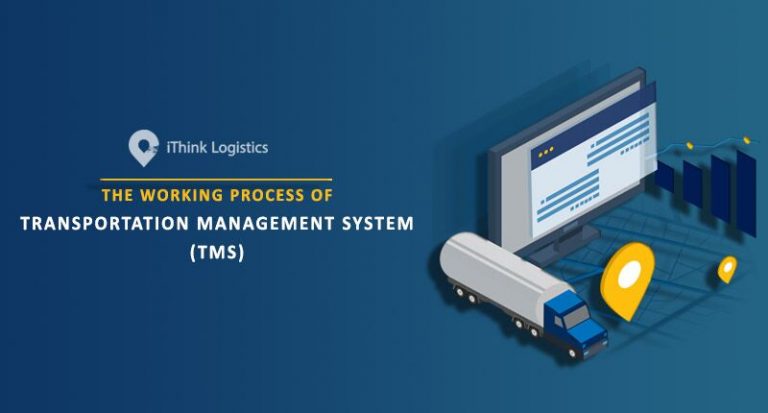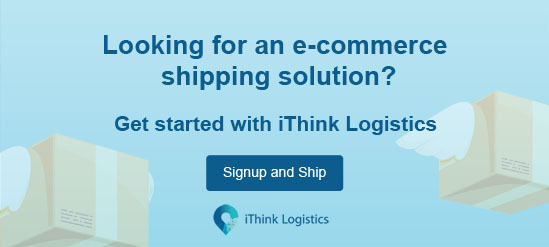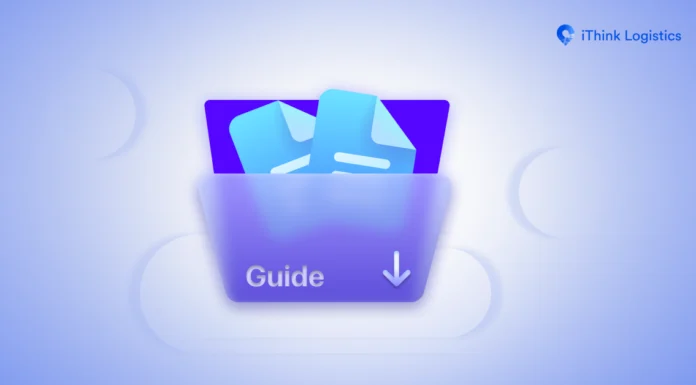What Is TMS- Transportation Management System?
A Transportation Management System (TMS) is a software solution designed to optimize the logistics of transporting goods. It helps businesses plan, execute, and track shipments in real-time, ensuring cost-effective and efficient movement of products. With a transportation management system, companies can select the best carriers, streamline routes, and monitor the status of shipments, all while reducing expenses and improving customer satisfaction.
What Is Transportation Management?
At its core, transportation management in logistics refers to the process of organizing and overseeing the movement of goods. It involves coordinating the various elements of shipping, from choosing carriers to managing delivery schedules and optimizing routes. Effective transportation management in logistics ensures timely and cost-efficient delivery, reducing delays and improving supply chain performance.
Why A Transportation Management System Is Essential?
A transportation management system is essential for businesses looking to streamline their logistics. By automating key processes and providing real-time visibility, it enables companies to manage their shipping needs more effectively. Overall, having a strong transportation management strategy, supported by a TMS, can enhance operational efficiency, reduce costs, and improve the overall customer experience.
Growing steadily as technology progresses, Transportation Management Systems seemingly flourished as one of the most helpful transportation solutions in supply chain management. Transportation Management System (TMS System) is a platform designed to streamline the transportation process, a subpart of the supply chain. It deals with monitoring, organizing, managing, and handling any matter related to the transportation of the products right from placing the order until the final delivery.
Growing steadily as technology progresses, Transportation Management Systems seemingly flourished as one of the most helpful transportation solutions in supply chain management. Transportation Management System (TMS System) is a platform designed to streamline the transportation process, a subpart of the supply chain. It deals with monitoring, organizing, managing, and handling any matter related to the transportation of the products right from placing the order until the final delivery.
Various eCommerce giants, logistics companies, distribution businesses have been looking for fine solutions to minimize the overhead spending and bring fluency into their business operations. Thus, being able to track their freight and consignments proved to be a meaningful way to devise the potholes in the process that can be shaped to perfection.
In addition to this, Transportation Management Systems has also brought other most useful ways of tracking shipments, reducing unnecessary costs, understanding the needs of the customers, and also gathering real-time information about the entire shipping process.
Also Read: How A Transportation Management Company Increases Available Freight Capacity?
How Does The Transportation Management System Operate?
The popularity of the TMS platform can be based upon recent studies that indicate almost 35% of the businesses are now using the platform for managing their transportation network. With the increasing complexities of logistics and transportation as the business grows, the need for Transportation Management Systems can never be exaggerated.
Technically, the Transportation Management system (TMS System) enables a better transactional and communication system that allows the users to leverage vast real-time data and make easier decisions, plan and strategize for optimal transportation solutions.

The most effective TMS platform works in collaboration with the Supply Chain Management platform, and the ERP platform facilitating the entry of customer orders and integrating that with the warehouse management system and inventory management system, creating a loop in the network.
Here are the best features that can be leveraged from an advanced Transportation Management system;
Planning And Decision-Making
With all the instant data and business insights, the TMS platform devices the most relevant reports and presents them under a single dashboard for better visibility. Business leaders and Transportation Management Companies now have a tool that could ground the decision-making process much more effectively. Some of the major attributes that are benefited include fewer road stops saving time, following through shorter routes, and ultimately lowering the transportation cost.
Execution Of Transportation Plans
Transportation Management systems make it easier for management to frame better strategies and transportation plans. The platform addresses the major functions like dispatching, carrier rate acceptance, and EDI by automating most of its functioning staying away from much lesser human intervention. As the management is now able to plan better, it becomes much easier to successfully execute them.
Visibility
A TMS platform makes it much easier for shippers to track and keep close visibility of the entire shipment process. This allows the business leaders to have freight visibility including all the team members in the same loop. The logistics manager deals with a clearer view of the freight or consignment from point A, delivered to point B with all insights on invoicing, customs clearance and booking.
Measurement
Every Transportation Management system provides various reports on the Key Performance Indicators (KPIs) for e-commerce logistics for every aspect taking place in the transit. This makes it convenient for the shippers and distribution units to measure and keep a record of all major attributes. The final reports are presented through a single dashboard view.
Transportation Management systems are considered as one of the core disciplines of supply chain management and deal with creating a bridge between supply chain planning and enterprise resource planning. In the world of the logistics and transportation industry, it becomes subjective to the validity of the platform for all kinds of logistics, shippers, manufacturers, eCommerce businesses, retailers and third-party logistics management providers.
Also Read: How to Use Big Data in Freight Transportation?
Benefits Of Transportation Management Systems
Empowering Leaders With Technological Capabilities
Transportation Management Systems equips the shipper with all necessary and advanced tools that play a vital role in monitoring, organizing and managing the shipment process. The platform can be leveraged to handle several types of shipments all under a single dashboard allowing control from a centralized location. It resolves and mitigates all unnecessary stress and doubts that might occur due to unknowingness.

Simplifying The Entire Process
Technology intervening in a complex process makes it simpler. It simplifies all the hectic and mind-puzzling ways of managing the logistics, Freight Capacity, maintaining the order, freight rates, and delivery records, tracking shipments, understanding the demand in the market and the ways customers buy. Transportation Management Systems makes it easier for shippers to bring fluency into their business process and therefore easily manage the entire network under one dashboard. Another usefulness of simplifying the entire network comes with effective ways of making decisions. With more data and real-time tracking,
A Better Way Of Tracking Freight
Transportation Management Systems allows you to track the movement of your shipment through air, water or road and answer to any transit situations, unexpected delays and a lot more just from one single location. This can be considered as one of the easy ways to say goodbye to the traditional ways of taking risks of not having real-time information about the consignment.
The best part of it is to, adhering and relying on technology scales down the human error at the same time. With less human intervention on gathering real-time data and tracking the exact location of the shipment, business leaders find it much more convenient to make better and more effective decisions.
Gathering And Developing Better Business Insights
Here’s another major advantage that business leaders enjoy with Transportation Management Systems in terms of having access to a large set of real-time data and in-depth insights about the complete shipment process and better innovations in Logistics management. This feature becomes tremendously helpful to a business that deals with thousands or lakhs of orders on a single day.
A TMS platform records and saves every detail related to a particular order, and its successful delivery. Certain robust and advanced TMS platforms have efficient reporting capabilities that bring important analytical reports and important insights right to the user. This majorly helps during any decision-making process and allows the business leaders to make effective decisions while having quick access to a vast information pool.
Enhanced Customer Satisfaction
As a shipper starts making better decisions and keeps a track of the real-time data about the shipment, many important attributes become visible. The use of TMS System makes it easier for shippers to understand the trend of the customers while placing orders and comprehend better ways of answering all queries from the customer. It seemingly contributes more towards customer satisfaction and therefore customer retention.
Challenges Associated With Transportation Management Systems
Undeniably, with technology come certain challenges that need to be resolved before getting completely involved with it. A TMS System has its limitations that must be kept in mind while integrating the platform to take care of the entire transportation network. The major challenges that are still faced by many managers and operators responsible for transportation management include:

Keeping Organized Quotes
For businesses dealing with varied shipping and logistics companies, it becomes difficult for them to track quotes from different carriers and derive the best quote for just one shipment out of the entire network. Most of the time a TMS platform fails to organize the different quotes and details from different carriers. Thus the varying options and the inability to form a proper comparison make it more challenging for the shippers dealing with multiple shipment types thus failing to save time and effort at such times.
Selection Of The Best Carrier
With shipments varying based on locations, customers or products, it is impossible for a basic TMS System to track and organize all the carriers and form a comparison among them. Such a limitation restricts the shipper from selecting the best out of the lot and dealing with the dilemma of selecting the best suited for a particular consignment. This demands an increase in the complexity of the software that further leads to other consequential failures.
Also Read: How IoT is helping Transport and Logistics Industries
Tracking Several Shipments
With several shipment types varying based on time, location, and customer, keeping the exact tracking record of the freight becomes difficult. The TMS platform does not allow the user to efficiently track all shipments for international shipments and abroad transits under a single dashboard. This makes it more clumsy and confusing for the user.
Cost Of Integration
As business deals with all the above challenges and makes their TMS software capable of handling multiple shipments, it only makes the software heavier and the cost of integration therefore increases. Furthermore, every TMS System is not able to perform the best for multiple shipment types. This acts as a challenge for businesses with regulated budget options.
Conclusion
Despite the challenges that remain, businesses are in a steady state to welcome transportation in logistics as one of the most helpful and beneficial for managing their overall transportation needs. Though the platform is best suited for businesses dealing with a single logistics unit or own shipping arrangements. The latest Transportation Management Systems comes with many advanced features of data collection and utilizing the data to form efficient reports helpful for the management to make effective decisions at critical times.
A TMS in logistics plays a crucial role in streamlining the entire supply chain process. A Transportation Management System (TMS) helps businesses plan, manage, and optimize the movement of goods efficiently. With TMS in logistics, companies can automate processes like carrier selection, route optimization, and real-time shipment tracking, which improves operational efficiency.
Utilizing a TMS in logistics is essential for maintaining a competitive edge. By integrating a TMS in logistics, companies can reduce transportation costs, enhance delivery performance, and ensure a smoother flow of goods through their supply chains.











